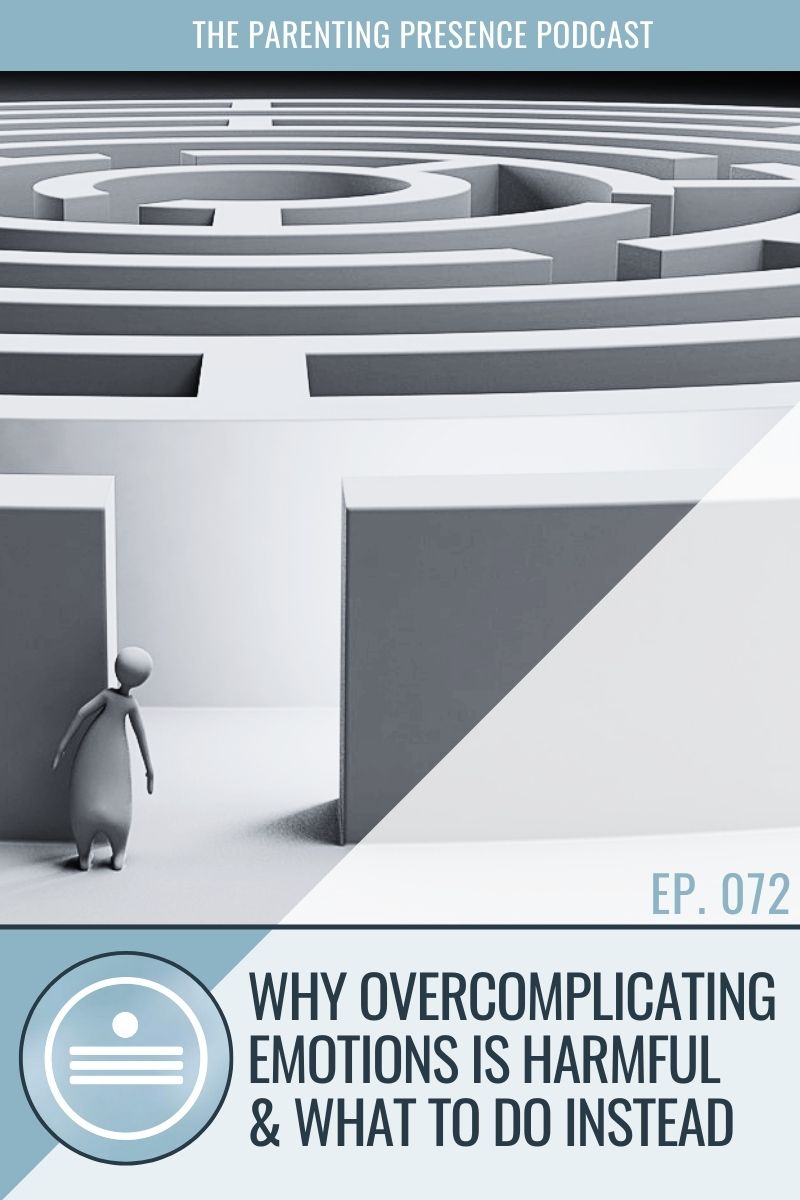
Let’s stop overcomplicating emotions. They are not a labyrinth that needs to be navigated with expert guidance. Do you need to know the latest research and complex neuropsychological terminology? Nope. Let’s talk about how we got here and what to do instead.
Imagine if we needed to know everything about our lungs and how they work in order to take a breath…
It would be impossible to breathe! And yet, something similar is happening with emotions. We no longer trust our basic intuitions about what we feel, because of so much noise in the mainstream narrative of pop-psychology about the purpose of emotions and what to do about them. We get lost in overcomplicating emotions.
How complicated are our emotions, really?
Brain functioning, neurotransmitters, chemical imbalance…
How much of that matters when it comes to understanding emotions?
Do we really need to know all these terms? Do they make it easier to understand and process what we feel? Here is my take: not only is this unnecessary, getting lost in these terms can actually be harmful. They misdirect our attention from what actually goes on when we feel what we feel.
When we try to explain our emotions with lingo such as “brain functioning,” “neurotransmitters,” “chemical imbalance,” etc., we miss out on the opportunity to try to understand the real cause of our emotional signals. As I explain in “Don’t Blame The Brain,” emotions are signals about the world around us. They tell us how our environment (people, places, and things) interact with our personal needs.
When our needs are met we feel great and content.
When our needs are not met, we experience a negative emotion.
Negative emotions go away when we address our needs.
In order to meet our needs, we have to understand them, which comes from understanding ourselves, what works for us and what doesn’t. We do not have to know anything about our brain’s structure or chemistry in order to do that. When we overcomplicate emotions, it comes at a cost to our well-being and our ability to process emotions effectively. Concepts like these only get in the way of our ability to focus on ourselves and keep asking the questions:
“What do I need?”
and
“What will work better for me here”
Yes, it can be this simple. We can stop overcomplicating emotions by simply understanding their nature and purpose. In this week’s episode of The Parenting Presence podcast, we chat about why the world of emotions has become so complicated and why this trend is harmful. How much should we listen to “the expert jargon” and is there anything we can do instead? That and more, in this episode.
Have a listen and let me know if you have questions. There are two anticipated questions that I am voicing in today’s conversation, but I am most certain that you have more. So do let me know! You can reach out here, or send me a direct message (DM) on Twitter and Instagram.
“Don’t Blame The Brain” is the book I am referring to in this episode and it is a must read if you truly want to feel in control of your emotional life. It is now available on Amazon in three formats: hardcover, paperback, and ebook. Get your copy!
Additional episodes relevant to this topic:
- Nurturing Your Child’s Emotions (TPP 010)
- Nurturing Your Own Emotions (TPP 013)
- Don’t Blame The Brain For Your Thoughts & Feelings (TPP 068)
If you enjoyed this conversation, it would mean the world to me if you’d leave a rating and review on iTunes. That’s the best way to support this podcast and help other parents find it too.
